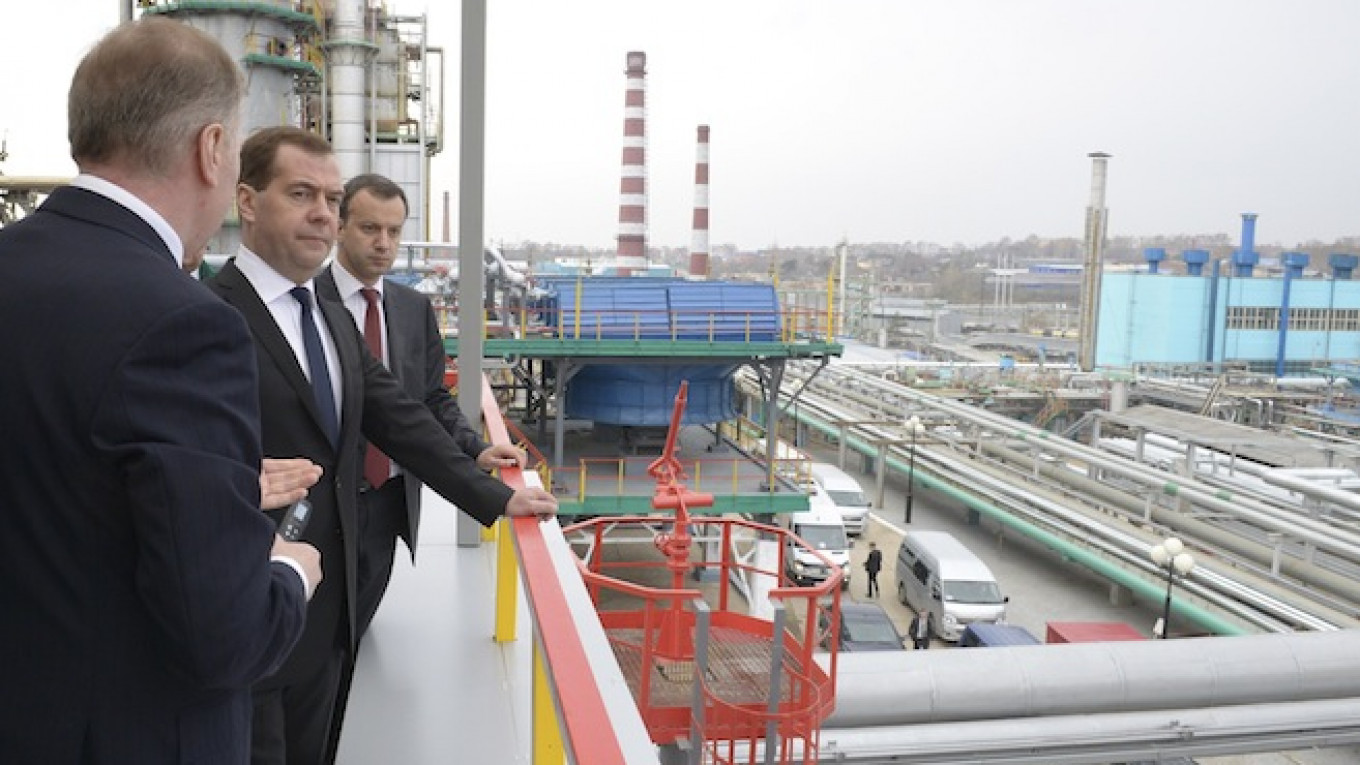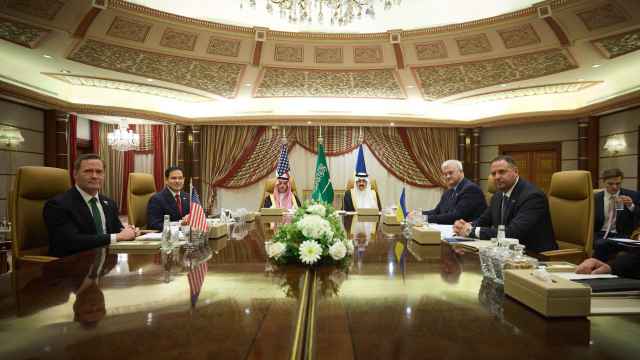President Vladimir Putin has said he sees no need for counter sanctions against the West, but could reconsider the participation of Western companies in the Russian economy, including energy projects.
The U.S. on Monday unveiled a new round of sanctions aimed at business leaders and companies close to Putin, while the EU followed up on Tuesday by naming 15 Russians and Ukrainians on its blacklist, moving to freeze assets and deny visas.
"We would very much wish not to resort to any measures in response. I hope we won't get to that point," he told reporters on Tuesday after meeting with the leaders of Belarus and Kazakhstan.
"But if something like that continues, we will of course have to think about who is working in the key sectors of the Russian economy, including the energy sector, and how."
Though some Western oil companies left Russia in recent years because of a difficult business climate, U.S. companies Exxon Mobil and Chevron Corp, along with British major BP, have significant ties in the country.
Igor Sechin, the head of state-controlled Rosneft, was named in the latest U.S. sanctions, though not his company, in which BP holds an 18.5 percent stake.
In Russia, Exxon Mobil's net acreage holdings in Sakhalin at the end of 2013 totaled 85,000 acres, all offshore, and its net acreage in the Rosneft joint venture agreements for the Kara and Black Seas was 11.3 million acres. The two companies also have a joint venture to evaluate the development of tight-oil reserves in western Siberia.
In the U.S., Rosneft unit Neftegaz in March 2013 bought a 30 percent stake in 20 deepwater exploration blocks held by Exxon in the U.S. Gulf of Mexico.
Exxon Mobil declined to speak about Putin's latest comments on Tuesday.
Meanwhile, Chevron Corp owns a 15 percent stake in the Caspian Pipeline Consortium, which transports crude oil from Kazakhstan through Russia to the Black Sea. The company also sells lubricants in Russia used in engines for ships and agricultural equipment.
Chevron declined to comment on Putin's latest statements, but said it was monitoring the region closely.
Putin reiterated his accusations that the U.S. was orchestrating the Ukraine crisis and urged Kiev and pro-Russia protesters to respect the Geneva agreements, reached on April 17 and intended to defuse the crisis, and sit down at the negotiation table.
The U.S. and EU accuse Moscow of orchestrating an uprising of pro-Russian separatists in southeastern Ukraine. The crisis has brought relations between the West and Russia to their lowest since the end of the Cold War.
See also:
A Message from The Moscow Times:
Dear readers,
We are facing unprecedented challenges. Russia's Prosecutor General's Office has designated The Moscow Times as an "undesirable" organization, criminalizing our work and putting our staff at risk of prosecution. This follows our earlier unjust labeling as a "foreign agent."
These actions are direct attempts to silence independent journalism in Russia. The authorities claim our work "discredits the decisions of the Russian leadership." We see things differently: we strive to provide accurate, unbiased reporting on Russia.
We, the journalists of The Moscow Times, refuse to be silenced. But to continue our work, we need your help.
Your support, no matter how small, makes a world of difference. If you can, please support us monthly starting from just $2. It's quick to set up, and every contribution makes a significant impact.
By supporting The Moscow Times, you're defending open, independent journalism in the face of repression. Thank you for standing with us.
Remind me later.






